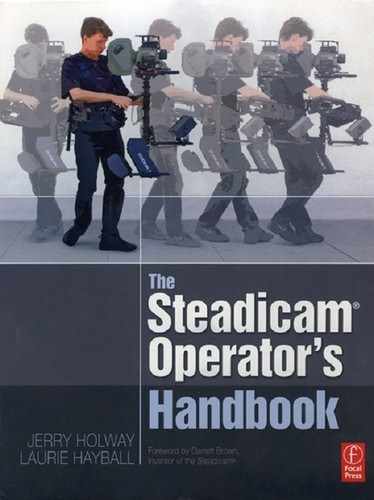Insurance
for you and the gear
You should carry insurance for you and your gear.
There is no good reason to risk your livelihood to “save” a few hundred bucks a year. Consider the expense part of your business, and budget accordingly, just as you would for a new widget or focus motor.
Insurance for you is called liability insurance, and it protects you when you accidentally drop your Steadicam on the leading actress's big toe. It is generally very inexpensive insurance, and you'd be foolish not to have it.
Buying insurance for your equipment can be a bit more complicated, because exactly what is covered, under what circumstances, for how much, and with what sort of deductible can vary quite a bit. In general, you will want a “replacement value” policy; i.e., a policy that will enable you to buy a replacement Steadicam if yours is damaged or stolen, rather than a policy that only pays you what your gear is “worth” (less and less as the years go by, and a number determined by the insurance company, not by you). A replacement value policy will be more expensive, but when catastrophe strikes, you want to be back up and working as soon as possible. Any policy with a high deductible will cost you less money, as you are assuming some of the risk of loss.
You should also read all the fine print. A friend of ours found out the very hard way that his insurance policy was good everywhere except when the gear was in his car -locked or unlocked.
Be sure your policy covers you aud your
gear everywhere, all the time.
No matter what sort of insurance you have — or how much — you want to be sure that the production company is the first line of insurance both for you and your gear.
You should always be an employee of the production company, not a subcontractor. Get paid an hourly wage and have the taxes taken out, unemployment taxes paid, etc. It may leave you with less cash in the short run, but it keeps you far away from potentially huge financial risks.
Be sure to get an insurance certificate from the production company for your gear, with you and/or your company as the “named insured.” Provide the production company with a list of your equipment and serial numbers. Have the insurance certificate in hand before you start working, as it may be strangely difficult to obtain it after the little mishap.
Being an employee of the production company may not be easy or even possible on smaller jobs, student films, and the like. If you're getting paid cash, a flat sum, etc., you are a subcontractor and will be assuming all the risks, so act accordingly, and charge accordingly. There's nothing dumber than taking all the risks and heavily discounting your rate at the same time. Fate would have it that the only time I've ever needed insurance was on a student film I agreed to work on.

The certificate should read: “additionally insured, loss payee” with your name.
